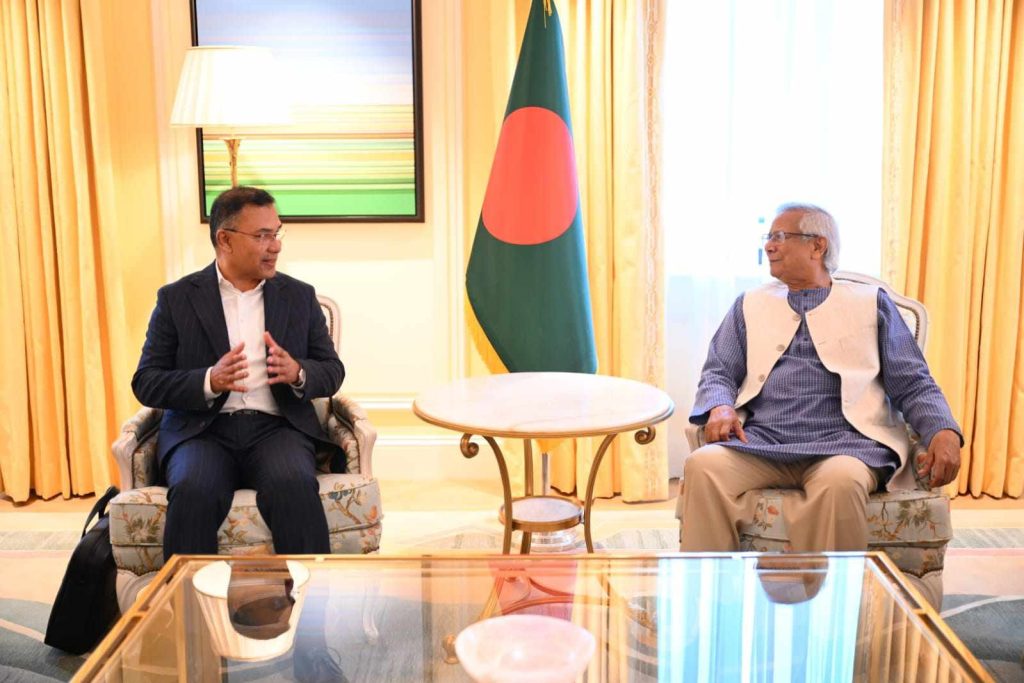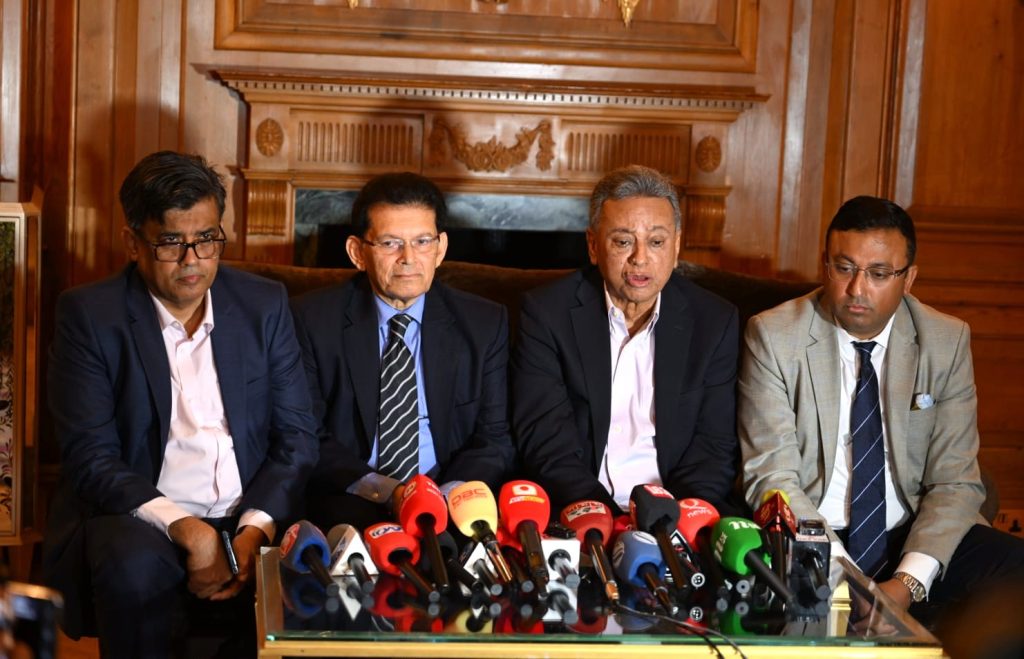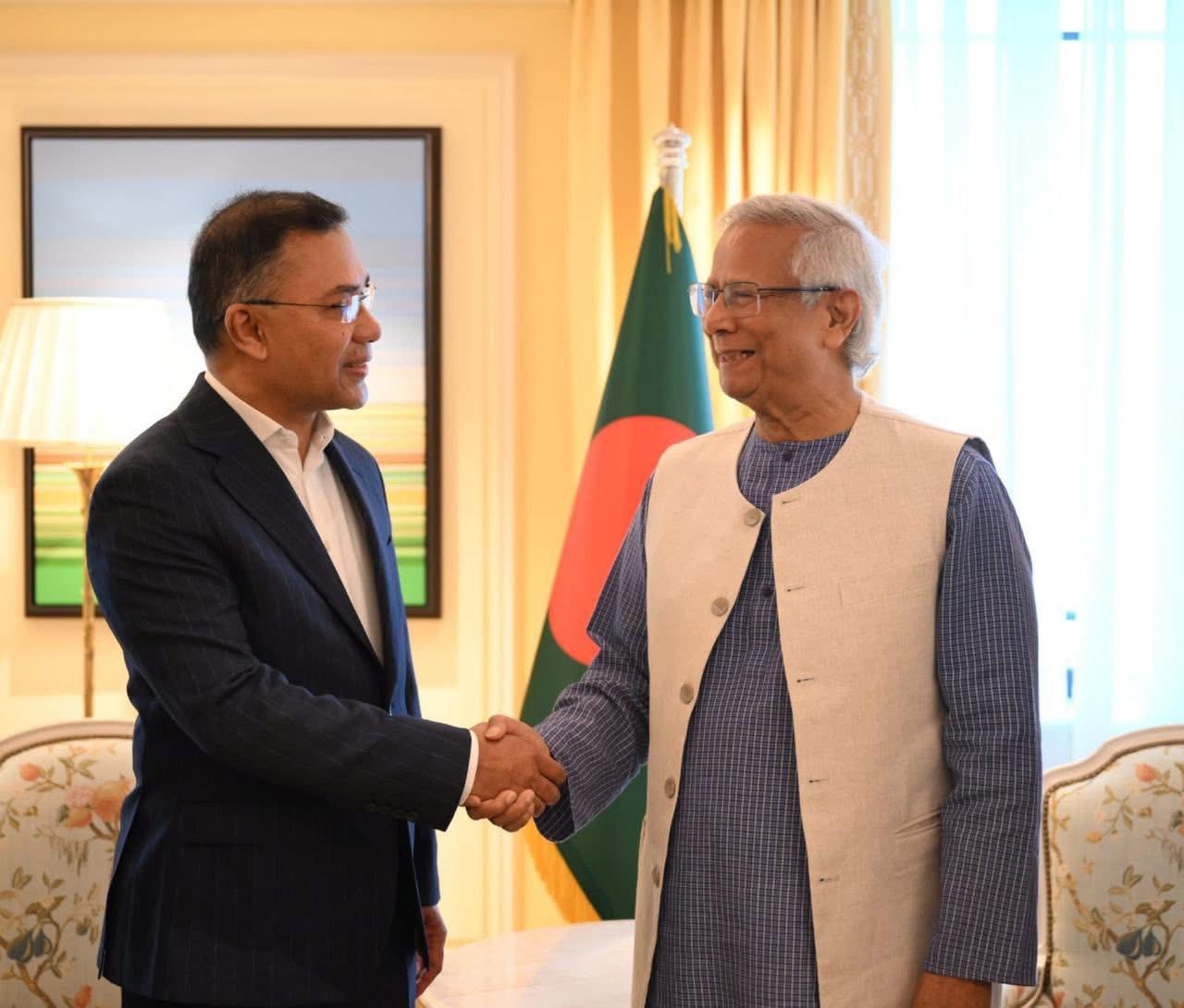The recent London meeting may signal the end of a long political impasse and the beginning of a new chapter. The encounter between Muhammad Yunus, Chief Adviser of the interim government, and Tarique Rahman, acting chairman of the BNP, was more than a private dialogue between two top leaders — it was the outcome of a much broader political and diplomatic choreography, laced with compromise, competition, and strategic calculation.
The event came just a day before Eid-ul-Azha, on 6 June, shortly after Yunus announced in a national address that general elections would be held in April 2026. That announcement sparked intense pressure, confusion, and concern across various quarters.
The post-uprising government, born of the July 2024 student-led movement, has been under scrutiny from the outset — its legitimacy questioned and its administrative performance criticised.
In the early days, many viewed Yunus’s leadership as a symbol of moral restoration, anticipating that the Nobel Peace Prize laureate would build a new Bangladesh to be founded on anti-corruption, transparency, and political reform. Internationally respected, Yunus’s persona initially gave his rule a sheen of idealism.
However, cracks soon began to show. His government became increasingly unilateral, and its relationship with the BNP deteriorated.
Administrative inefficiencies became noticeable, partly due to the indirect influence of leaders from the newly formed National Citizen Party (NCP). Even within the military — believed to be the pivotal force behind the July uprising — there were signs of doubt and discomfort. Global actors, meanwhile, repeatedly expressed concern about the lack of a free, fair, and inclusive electoral process in Bangladesh.
Analysts suggest that Yunus, having mounted the “tiger of power,” faced only two options:
1- Attempt to prolong his rule by leveraging popular student support and integrating the military more deeply into political administration; or
2- Negotiate with major political forces to organise an acceptable election, paving the way for a graceful exit.

Following the London meeting, it appears Yunus has opted for the second route. He likely recognises that with the NCP’s lack of competence, growing administrative unrest, and wavering international support, his mission is rapidly becoming untenable.
The military’s stance has been consistently clear: elections within 18 months and a return to the barracks. These repeated assertions reflect both their discomfort with prolonged political paralysis and their desire to maintain a professional distance from civilian governance.
The military leadership evidently does not consider long-term political entanglement a safe or sustainable option.
In this context, the London meeting served as a temporary resolution to a complex crisis — lowering political tensions while offering a diplomatic “face-saving arrangement” under international pressure.
Beneath this surface0, however, lie deeper strategic calculations that may shape the direction of Bangladesh’s democratic transition.
From Yunus’s perspective, the meeting offers a pathway to a dignified departure. He may now accept that the shortcomings of his government are too glaring for long-term survival — marked by a fragile bureaucracy, internal fractures among students, volatile street protests, and limited international backing.
This route allows him to avoid appearing to relinquish power under pressure, and instead position himself in history as the guardian of democracy’s return through a participatory election.

For Tarique Rahman, the meeting could be the first step toward reclaiming political relevance. After years of exile and political inactivity, it presents a significant opportunity for his re-emergence. If the agreement leads to internationally monitored, fair elections, it could mark a legitimate and politically fruitful return for the BNP. For Tarique, this is not merely about gaining political capital, but also about climbing a diplomatic ladder toward restoring his leadership’s credibility.
Details of the meeting remain undisclosed, but reports suggest that before Ramadan, a framework for national elections may be announced —along with terms that ensure the BNP’s reintegration into a participatory process. This could involve restructuring the government and Election Commission, guaranteeing international monitoring, and securing judicial neutrality. The key question remains: will Yunus quietly step aside, or will he continue to play a behind-the-scenes role in shaping the next political balance?
This ambiguity was hinted at during the post-meeting press briefing by BNP Standing Committee member Amir Khosru Mahmud Chowdhury, who said, “We wish to work together—both before and after the election.”
Still, there are concerns. If the meeting is merely staged to provide Yunus with a dignified exit, it may raise more alarm than hope for Bangladesh’s democracy. History shows that under the guise of compromise, political deception has often played out. The lingering question is whether the discussions in the glittering rooms of London reflected the people’s will — or a sensitive script crafted by elite diplomats.
Even after the Election Commission unveils its roadmap, doubts still persist: are we genuinely walking toward an inclusive election — or simply facilitating the tactical exit of one leader, making room for another, as history prepares to repeat itself?
In the end, the London meeting appears to have opened a window of relief. But in Bangladesh, windows let in both light and smoke. Whether this light will illuminate democracy — or lead us once again into a strategic darkness — will be determined by the political developments in the coming months.


